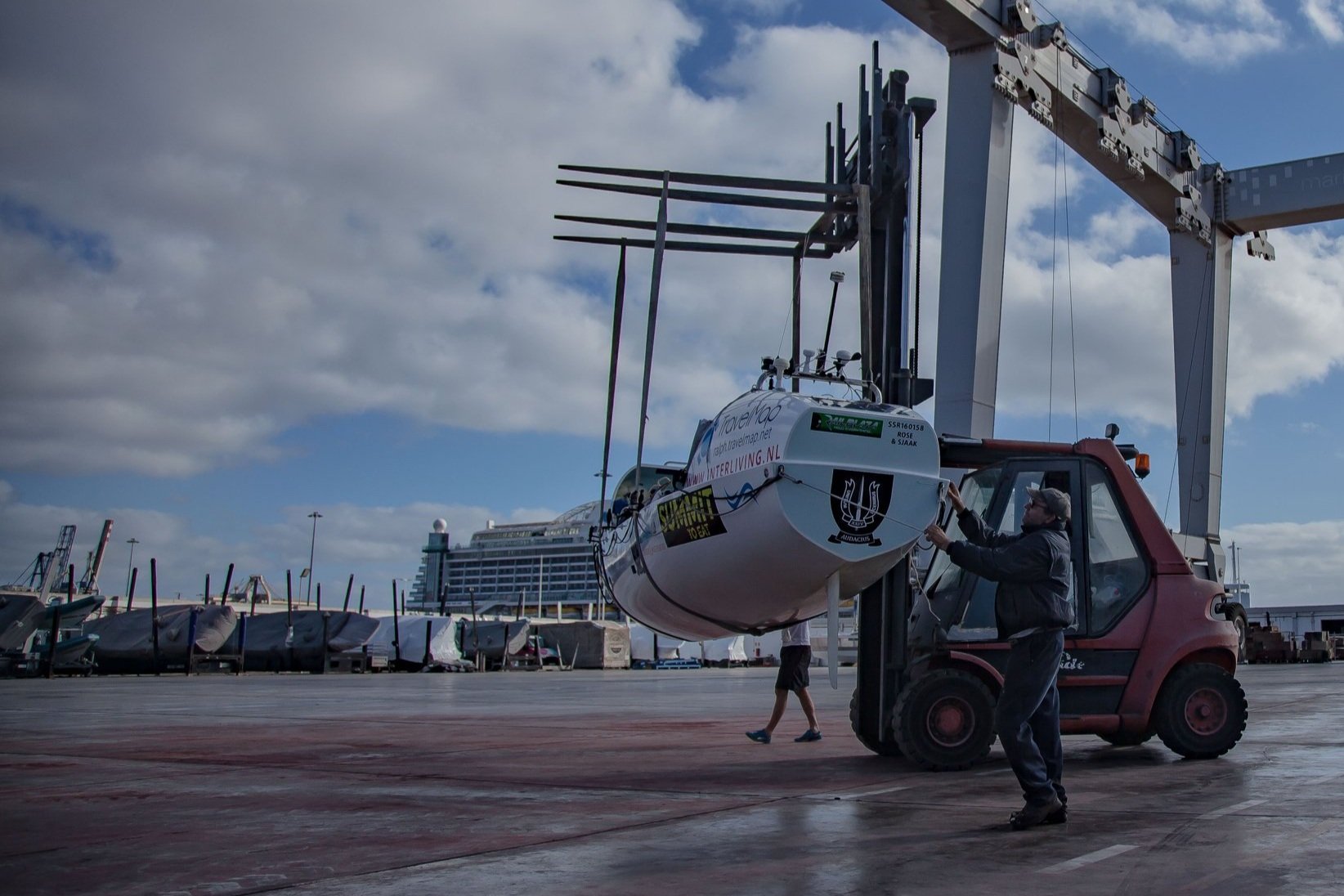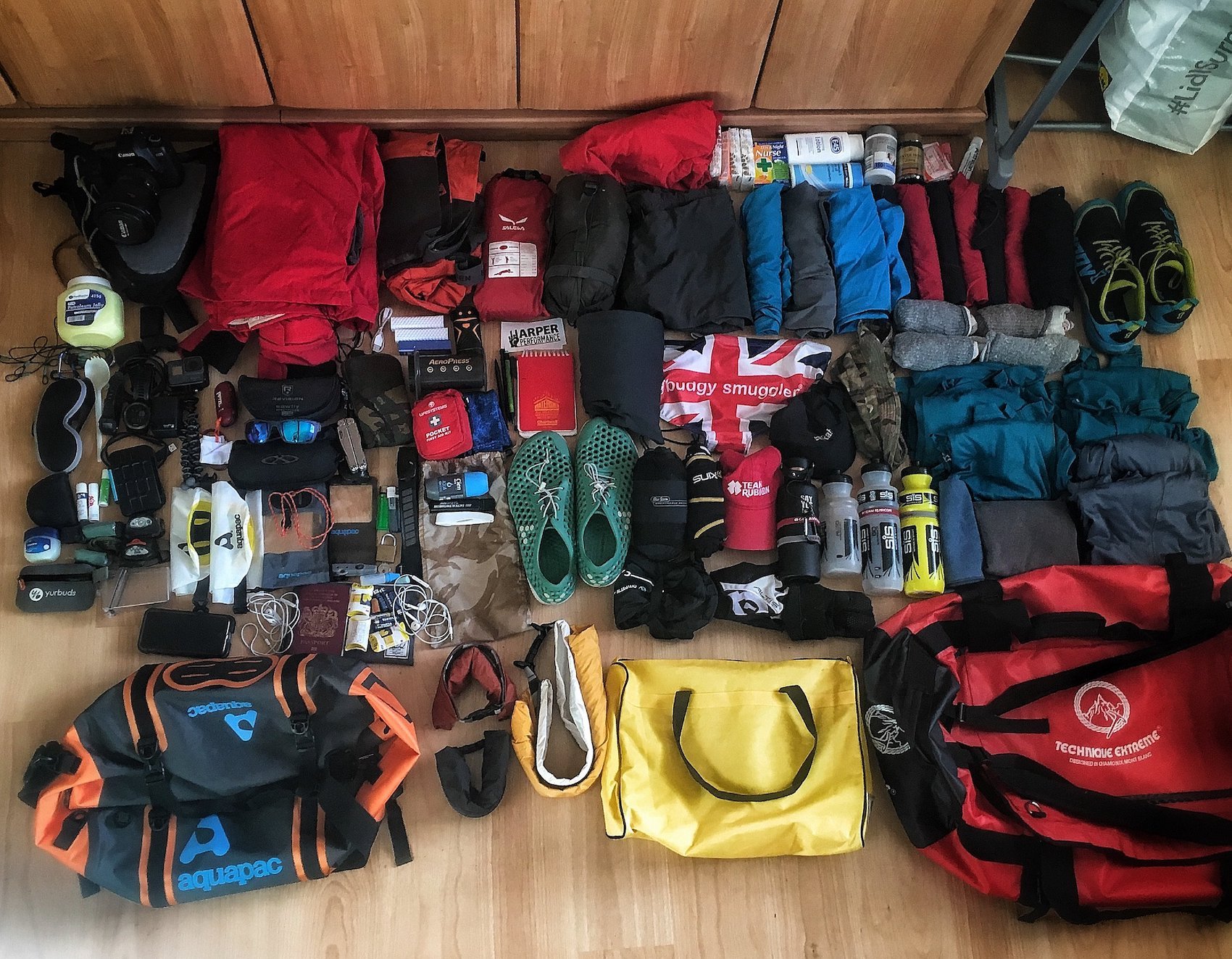
What it’s like to row across the Atlantic ocean
Over 3500 nautical miles from Portugal, Europe to French Guiana, South America
About the author: Chris Shirley MA FRGS
A former Captain in the Royal Marines, Chris has been an advisor on the BBC’s High Risk and News Safety team, has led the risk management function in an international media charity, and has been an international disaster responder with Re:Act for a number of years.
He holds a master’s degree in business management, has travelled in over 60 countries, is a fellow of the Royal Geographical Society (FRGS), is a Guinness World Record holder, has rowed across the Atlantic in a 5-person team, completed the Marathon des Sables, Ironman triathlons, and many ultra-distance events.
Dedicated to Neale Connolly, one of the 5 Atlantic Allies who sadly passed away in early 2022, having completed his lifetime ambition of rowing across the Atlantic ocean.
Ocean rowing: sky high waves; blisters; arguments; boat failures - it's a sport that's not for the faint-hearted! In 2017, a team of 5 guys decided to row over 3500 miles across the Atlantic Ocean, from Europe to South America to set a new world record. Along the way, we encountered huge mechanical issues, rough seas, terrible weather, and social challenges. This is how we got on.
You might also be interested to read:
How it came about
It’s early July 2017, and I’m laying in bed in the spare room. It’s 4 am and I’m wide awake – my mind is racing at 100 mph when it doesn’t need to be.
The job has taken its toll on me – both emotionally and physically, and so I feel the need to do something to fill this gap in my life, to put this chapter of my life neatly into a back corner before I’m ready to deal with it.
I’m scrolling through Facebook when I notice a post in an ocean rowing group advertising a space for a forth crew member aboard a transatlantic world record attempt. My attention is captured.
Truthfully, I’m still after the next big thing and this ticks all the boxes: world record attempt (I was still annoyed from losing my previous one); ocean rowing (a sport I’d started to build quite an interest in) and expeditionary – the reason why I’d joined the Royal Marines. So where should I sign?
I message the skipper there and then. Albert is a mid-40s medical professional that’s been adventuring for the last couple of decades. He’s got quite the CV – having cycled across continents, rowed across the Atlantic several times, almost rowed the Indian (he got ran over by an oil tanker) and rowed the pacific in 3 stages. I decide with that kind of experience – this crossing should be a cinch for him. He could probably plan and it and do it with his eyes closed.
The very next day, we talk on Skype and within minutes I realise I’ve committed. The next 8 months have now got shape and I’ve got a new mission. I feel like I now have a purpose again.
New paths
It’s also around this time that my life starts to take a new direction. Having reconnected with a close university mate a few weeks before my world record attempt in 2015, I’ve found myself developing a big interest in mountaineering. And having summited Mont Blanc with him and a great bunch from Brighton, I realise that I want to do more of it.
In fact, I start to realise that it’s replacing a huge element that I got from the military; the controlled application of high-risk activities (which includes a measured exposure to danger).
Having a new challenge fills me gives me drive again. But I’m also beginning to realise that I want to do it for a good cause. A nascent feeling is telling me that it’s not right to just do this for a challenge and that actually it should benefit someone (not just me), so I choose the charity that I’ve been volunteering with for the previous two years.
Team Rubicon UK (now renamed to Re:Act) – a disaster response charity started in 2010 by two former US Marines, has been doing some great work in all kinds of difficult contexts for around 3 years by that point. Like many good things in my life, I’d heard about it through a TED talk and then kept a keen eye on it until I got wind of a UK arm being set up. In November 2015 - Whilst in transition from the military - I deployed to Nepal to support a shelter reconstruction project in the Gorkha district; the epicentre of the terrible earthquake the same year.
Spending 2 weeks in the communities, living in tents and helping to expedite the construction of earthquake-resistant shelters with communities painfully crammed into the only standing structures was an incredible experience –and told me that I needed to do something with purpose when I left the military.
With a new mission; to fundraise for TR by rowing across the Atlantic Ocean – I feel like I’ve got my game back after the challenges of operating in an active warzone. It keeps me up long into the night and wakes me up early in the morning – but I love the feeling of having fire in my stomach.
Within weeks, I’ve set up a website, sponsorship deck and promotional material. After jacking in my graphic design degree as an impatient twenty something, I’m finally seeing some use for the hard earned skills that costs tens of thousands of pounds in student loans and living costs (as a student from social housing and single parent family, I didn’t have to pay tuition fees). I’m also calling on my social network as much as I can to get support from athletes, adventurers and those in the public eye – in some ways the preparation becomes more challenging than the actual crossing.
Despite many emails and promises of financial support, I would get to the start line having to pay my own way.
Read Part 2 here
You might also be interested to read:




